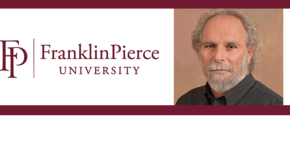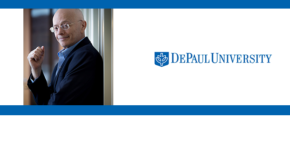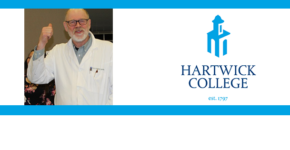Category: Health
-

Allan Rachlin, Franklin Pierce University – American’s Quality of Life
Americans donate the most to charity. Allan Rachlin, associate professor of sociology at Franklin Pierce University, examines why we’re not at the top of other quality of life lists. Allan Rachlin is an associate professor of sociology at Franklin Pierce University in Rindge, N.H., where he teaches a popular undergraduate course on poverty and wealth…
-

Leonard Jason, DePaul University – Chronic Fatigue Syndrome
Chronic fatigue syndrome is often dismissed as something just in your head. Leonard Jason, professor of clinical psychology at DePaul University, explores why this may need a rethink. Leonard Jason is a professor of clinical and community psychology in DePaul University’s College of Science and Health. He’s also the director of DePaul’s Center for Community…
-

Juergen Hahn, Rensselaer Polytechnic Institute – Using Big Data To Evaluate Autism Treatments
On Rensselaer Polytechnic Institute Week: We need a new way to diagnose autism. Juergen Hahn, professor of biomedical engineering, looks to the blood to find a solution. Juergen Hahn is the department head of the Department of Biomedical Engineering at Rensselaer Polytechnic Institute in addition to holding an appointment in the Department of Chemical &…
-

Julie Walsh-Messinger, University of Dayton – Understanding Schizophrenia Through Smell
On University of Dayton Week: The nose may help us understand more about schizophrenia. Julie Walsh-Messinger, assistant professor of psychology at the University of Dayton, tells us more. Julie Walsh-Messinger is an assistant professor of psychology at the University of Dayton and a Licensed Psychologist in Ohio and New York. Her research broadly focuses on…
-

Scott Hall, University of Dayton – Emotional Well-Being of Patients
On University of Dayton Week: Healthcare shouldn’t be limited to physical ailments. Scott Hall, professor of counselor education, determines another important area of treatment. Scott Hall, professor of counselor education at the University of Dayton, is co-author of Managing the Psychological Impact of Medical Trauma: A Guide for Mental Health and Health Care Professionals. As…
-

Chad Painter, University of Dayton – Newspaper Coverage of Opioid Addiction
On University of Dayton Week: How newspapers report on an issue can have a big impact. Chad Painter, assistant professor of communication, describes how. Chad Painter is an assistant professor of communication at the University of Dayton, where he teaches courses in journalism and mass communication. He studies media ethics with emphases on the depiction…
-

Stanley K. Sessions, Hartwick College – Heart Disease
On Hartwick College Week: Regenerating lost heart tissue would be a boon to our health. Stanley K. Sessions, professor of biology, looks to the salamander to find out how. For the last 30 years, Dr. Stanley K. Sessions has worked in the Department of Biology at Hartwick College where he teaches Animal Development, Vertebrate Zoology,…
-

Susan Masino, Trinity College – Ketogenic Diet
On Trinity College Week: Can your diet help you avoid epileptic seizures? Susan Masino, professor of applied science, looks into this question. Dr. Masino is the Vernon Roosa Professor of Applied Science at Trinity College and a joint appointment in Neuroscience and Psychology. Her research focuses on promoting and restoring brain health, with a particular…
-

William Church, Trinity College – Cell Death and Parkinson’s Disease
On Trinity College Week: To help fight Parkinson’s disease, catch it earlier. William Church, associate professor of chemistry and neuroscience, examines the importance of early detection. Professor Church grew up in Virginia and received a B.S. in Chemistry at James Madison University. After taking a year off to work in a hospital where he realized…
-

Kurt Amsler, New York Institute of Technology – Averting the Imminent Physician-Scientist Shortage
Medical innovations are on a downward trend. Kurt Amsler, professor of biomedical sciences at the New York Institute of Technology, explores why. Throughout his career, Kurt Amsler has focused his research on epithelial physiology, with a particular emphasis on renal physiology. His research has covered multiple areas including basic epithelial transport physiology, cystic fibrosis, polycystic…
